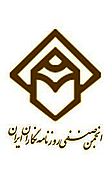Minister of Labor Pursuing to Establish a New Body
» The Association of Professional Iranian Journalists Not to Be Reopened?
A pro-government website recently announced that the Association of Professional Iranian Journalists will not be reopened. The minister of labor recently spoke about the creation of a professional organization but made no reference to the issue of opening the now-banned body. President Hassan Rouhani had made campaign promises, followed by similar remarks after he took office in 2013, that the APIJ would be reopened, creating enthusiastic optimism among journalists. The minister of Islamic Guidance, whose agency oversees the work of the media, had also made positive statement on a possible reopening without any real measures emerging on this. Now not only is the dream of reopening the popular professional guild not materializing, there is even talk of replacing it.
Opposition by Some Authorities
Last Thursday, Iran’s minister of labor Ali Rabiei met with journalists to talk about the subject. The purpose of the meeting was labeled, “Exchange of views to create a journalists guild to address shortcomings.” During the meeting, Rabiei discouraged attending journalists from taking any radical measures in their media activities and added, “Journalists can hold together by pursuing their issues and problems through a professional guild and civic discourse and by refraining from any political leanings.” He also called on the journalists to cooperate over news and media issues “to launch an organization for writers.”
The news of this event was published by Iran’s official news agency, IRNA, with a delay and then was removed from the site and other news sites for unspecified reasons.
A website called Payamjoo on Saturday posted a news event claiming that the reopening of the APIJ is now “suspended for the foreseeable future.” It said this was the conclusion reached after speaking to “various sources” which had also been confirmed by “a knowledgeable source.” It further said that some “irresolvable obstacles, including decisive opposition by some appropriate authorities” had resulted in the suspension of the reopening.
But what was perhaps most telling in this story was that the “knowledgeable source” also said that “some interviews, speeches and the recent actions by the European Union in including the name of the APIJ in their most recent statement on Iran” played a negative role in the possibility of reopening the guild.
The Judiciary is a Key Opponent of Reopening
In his first press interview as president, Hassan Rouhani last year responded to a question by a reporter from Shargh newspaper by saying: “I believe that not only the APIJ but any association that operates legally should remain active because they are the best forums for managing the issues of society. The management of social issues should be done by the professional organizations and guilds. So I will make my efforts in this regard.” A day later the APIJ formally requested from the president that the association be allowed to restart its work.
Last February, close to 1,200 journalists signed a petition that was sent to the president requesting that the association be allowed to resume its work. This was followed by some promising statements by the minister of Islamic Guidance. Ali Janati even announced that the ministry of guidance and that of labor had no problems with the reopening, adding that the ministry of intelligence had retracted its complaint against the APIJ, clearing the way for a change. The association should hold its general assembly and elect a board of directors.”
What happened next was the intervention by the ministry of justice which prevented the reopening. The spokesman of the ministry announced that there had been no positive change to allow for the reopening of the association. Gholam-Hossein Ejhei said, “The ministry of intelligence was not the complainant in the case. It had investigated the criminal activities of the association and thus had passed the case to the judiciary.” Ejhei was the minister of intelligence in Ahmadinejad’s ‘s administration who was in that post after the offices of the association had been officially shut and sealed.
When Hossein Entezami was appointed to head the press affairs of the ministry of guidance in Rouhani’s administration, journalists interpreted that move to be against the reopening of the association. In the months that followed, Entezami tried to replace the association with a government-created association. Opposition rose and the plan was shelved. But looks like only for a long time.
Ali Rabiei, the reformist cabinet minister who has roots in the intelligence community opposes the reopening of the association. Some old veterans of the association say that Rabiei has acted against the reopening. So the recent call to launch a new government organization for journalists is viewed to be a replacement for original APIJ, thus dispelling any hopes of reopening the old independent guild.


